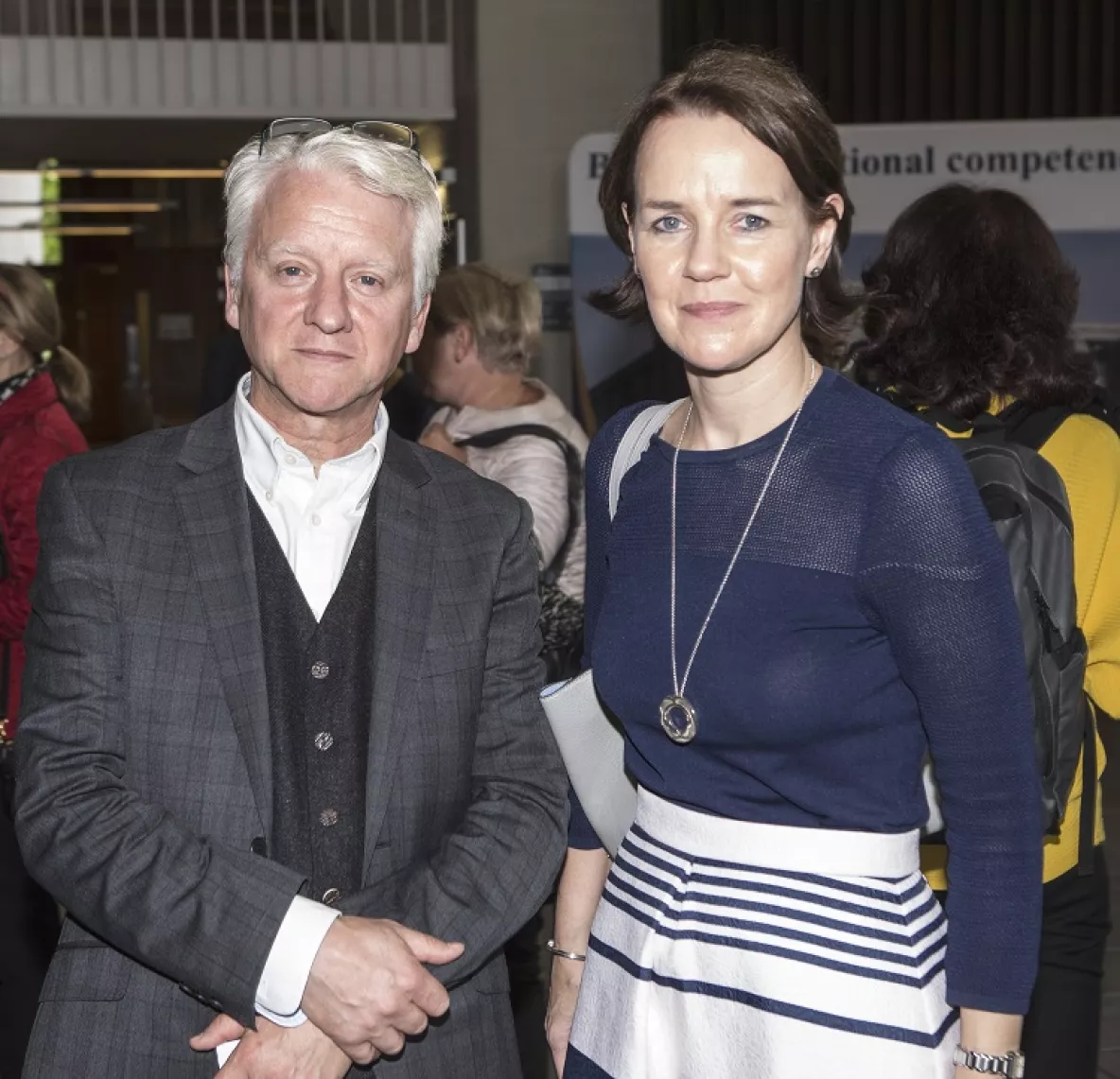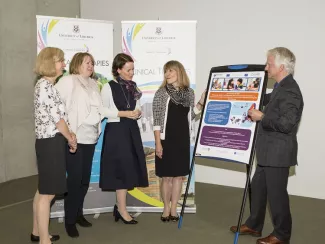
More than 150 practitioners, students and researchers in speech and language therapy, education and psychology recently attended a conference on child language difficulties held in UL.
Co-hosted by the Department of Clinical Therapies UL and EU COST Action IS1406, the conference outlined the importance of assisting children with difficulties learning their first language, aiming to enhance children's oral language skills across Europe and beyond.
Speakers from all over the world came together to share their research, initiatives and views on this pressing global issue that affects 5.8 million children across Europe socially, emotionally and academically.
Professor Ann Kaiser (Vanderbilt University, Tennessee) opened the conference with a keynote address on the positive influence of parent involvement in interventions.
Chair of COST Action Professor James Law (University of Newcastle), and Dr Carol-Anne Murphy of (Department of Clinical Therapies and vice chair of working group one of the COST Action), outlined the work of the network’s programme in informing and improving the understanding of interventions across Europe.
Dr Cathy Adams (University of Manchester) focused on interventions for children with social communication difficulties, while Dr Susan Ebbels, (Moor House School and University College London) presented evidence-based interventions for severe language disorders in school-age children and adolescents.
The work of Dr Cristina McKean (University of Newcastle and Murdoch Children’s Research Institute, Melbourne), using longitudinal popu
lation data, advances knowledge of the risks for persistent difficulties, and assists policy makers and practitioners to identify the children who most need intervention, and the factors most amenable to change.
Professor Law delivered the closing presentation, discussing the importance of a population-focus to improve language outcomes.
“Child language difficulties are a public health issue. They place a large burden on society, a burden that appears to be getting larger; the burden of these difficulties is distributed unfairly, with children from poorer communities more affected and we have growing evidence that preventive strategies could substantially reduce this burden,” he said.
Following the conference, members representing 34 of the COST network’s 40 countries met in UL over two days. The groups involved are half-way through a four-year programme seeking to increase the effectiveness of interventions for children with language impairment and to improve understanding of the contexts in which those interventions are delivered.
Details of the COST Action are available here.
